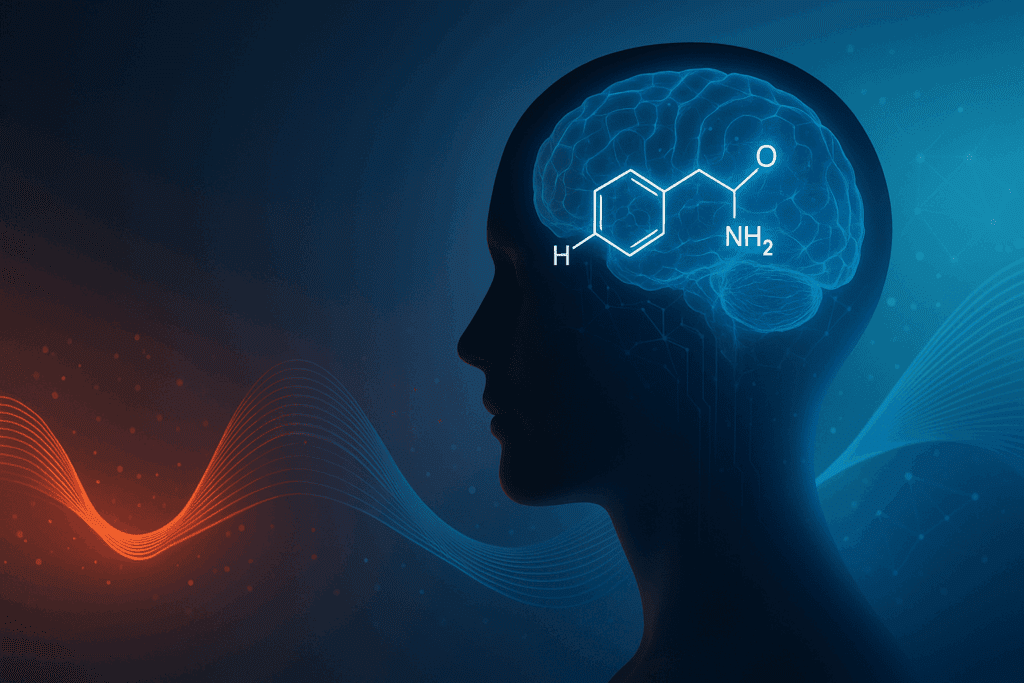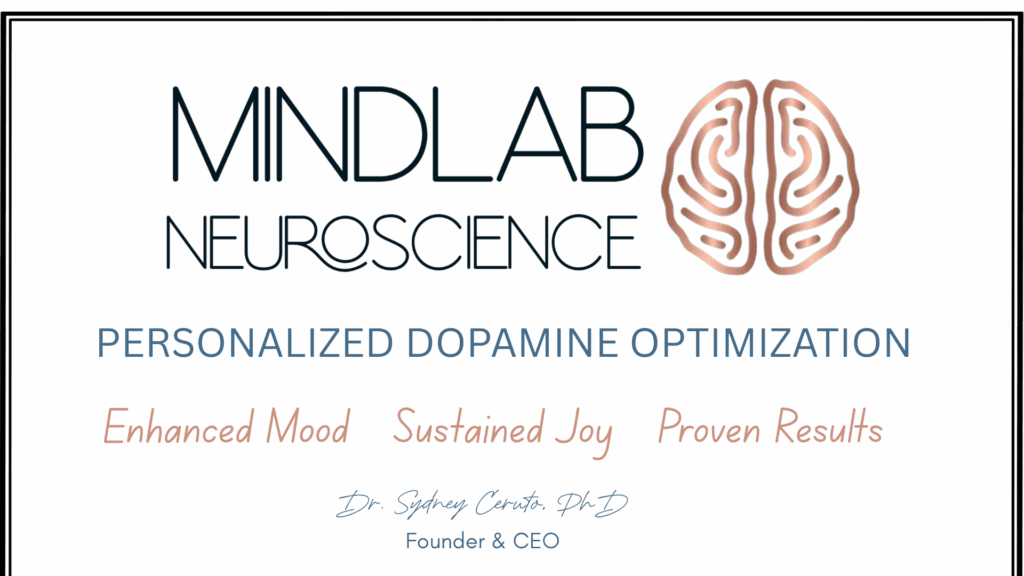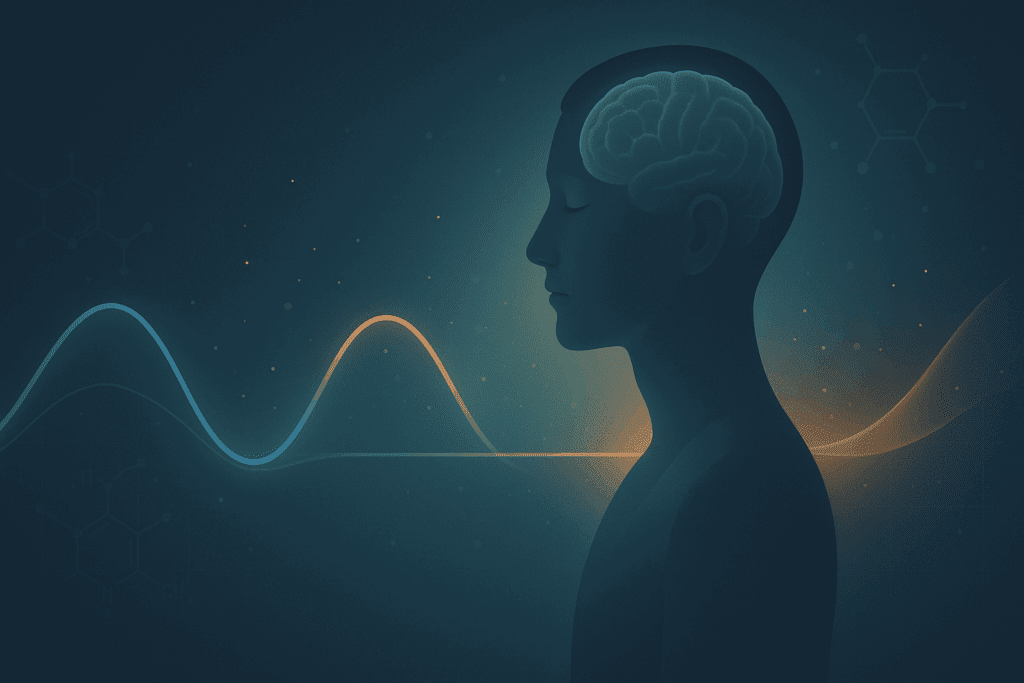Solving Mood Swings with Brain Science
Mood swings—a sudden, sometimes intense change in emotional state—can derail careers, relationships, and overall happiness. While most advice focuses on external fixes or invasive medical interventions, neuroscience reveals deeper, more sustainable solutions rooted in evolution, anthropology, and sociological research. Understanding dopamine and mood swings through the neuroscience based approach to emotional stability is essential for anyone seeking lasting mental health and peak performance.
Neuroscience-based coaching is a non-invasive, client-centered modality that harnesses scientific principles to transform mood, motivation, and resilience. Instead of “fixing” people by force, it builds on our adaptive ancient wiring and modern neuroplasticity to empower self-optimization. The nuances of mood regulation stretch beyond day-to-day quick fixes; they span the history of our species and the intelligent ways our brains have adapted to ever-changing environments. By drawing on the collective wisdom of evolutionary biology, anthropology, and the group-focused science of sociological, modern coaching aligns client growth with what makes us most fundamentally human.
The science of dopamine and mood swings is foundational to neuroscience-based coaching. Using a neuroscience based approach to emotional stability, coaches can target brain reward systems and teach clients how dopamine regulates both motivation and mood swings. The evolution of dopamine’s function shows that humans are wired to use mood swings as adaptive cues, and understanding dopamine enhances every intervention in emotional stability. Neuroscience-based coaching reveals how dopamine and mood swings respond to group rituals, goal setting, and mindfulness routines. For true resilience, coaching must integrate dopamine science, neuroscience based approach to emotional stability, and the real-life triggers behind emotional ups and downs.

Dopamine and Mood Swings: Key Mechanisms and Evolutionary Roots
Dopamine is a neurotransmitter central to motivation, reward, and mood regulation. Fluctuations in dopamine underlie many forms of mood swings, from energetic highs after achievement to slumps after perceived failure. Neuroscience shows that dopamine’s effects are evolutionary—the brain’s reward systems evolved to help our ancestors survive, thrive, and connect in complex social groups. The anthropological view adds another rich layer: over time, different societies developed unique rituals and cultural scripts for processing mood and emotion, yet the fundamental role of dopamine remains universal.
Sociological insights tie these findings together, revealing that group living and collective problem-solving bolster our natural emotional balance by creating supportive social buffers. These adaptive strategies were—and remain—an essential part of our species’ resilience.Through dopamine’s role, the interplay of ancient survival strategies and modern social connection helps us continually recalibrate toward emotional stability.
A neuroscience based approach to emotional stability begins by mapping dopamine’s role in mood swings and daily emotional shifts. Dopamine and mood swings are deeply coded in our evolutionary biology, providing the flexibility needed to adapt to change. When clients understand the neuroscience based approach to emotional stability, they tap into proven pathways for transforming their lives. Evolutionary pressures shaped how dopamine and mood swings operate together, making emotional regulation through coaching a potent strategy. Neuroscience-based coaching aligns dopamine-driven learning and behavioral change with natural emotional cycles for powerful results.
The Neuroscience Based Approach to Emotional Stability
Neuroscience-based coaching integrates evolutionary science, anthropology, and neurobiology to guide clients toward self-directed emotional stability. Its tools are rooted in research on neuroplasticity, neurogenesis, and brain networks that govern emotion. Neuroplasticity training encourages habit formation and emotional reappraisal through repetition, reinforcing adaptive dopamine circuits and diminishing negative mood swings. Mindfulness is used in practice to support dopamine-regulation by reducing stress and increasing neural flexibility. Cognitive reappraisal reframes negative experiences to shift dopamine release toward growth and curiosity.
Each component within my neuroscience-based approach to emotional stability is evidence-based and aimed at sustainable self-regulation, rather than quick or surface-level change. Coaches help clients set up daily reflection rituals, increase self-awareness, and celebrate incremental progress—the same pattern that led our ancestors to stronger communities and lasting emotional resilience. The neuroscience based approach to emotional stability prioritizes actionable science and the cultivation of lifelong skills.
Neuroscience-based coaching enhances emotional stability by working directly with dopamine and mood swings—shifting the reward system through habit change and brain-based interventions. This neuroscience based approach to emotional stability gives clients a template for lasting transformation. Whether using daily mindfulness or targeted cognitive reappraisal, the science makes dopamine and mood swings both measurable and manageable. Dopamine rewards healthy progress, and the neuroscience based approach to emotional stability reframes setbacks as fuel for growth. Coaches track changes in dopamine and mood swings over time, empowering personalized pathways to wellbeing through the neuroscience based approach to emotional stability.

Evolution: Why Mood Swings Developed and How We Can Transcend Them
Mood swings didn’t emerge by accident. Their evolutionary roots served essential functions that once gave our ancestors a biological advantage. Threat response enabled humans to react quickly in dangerous situations, which required rapid dopamine-driven shifts in emotion and behavior. Alliance formation was influenced by dopamine’s effects on social bonding, and mood changes allowed for strategic group communication and trust-building. Exploration and learning were encouraged by dopamine-driven curiosity, leading to greater resourcefulness and adaptability.
Neuroscience-based coaching respects this history by transforming the “adaptive edge” of mood swings into a foundation for modern personal growth. Today, these patterns might pop up in workplace challenges or relationship friction, but the toolkit remains the same: channeling emotional energy into reflection, learning, and goal achievement. Coaches emphasize that evolved mechanisms can be redirected with conscious practice, often resulting in greater resilience and more nuanced self-understanding.
Mood swings fueled by dopamine helped humans survive and thrive across evolutionary milestones, and a neuroscience based approach to emotional stability brings this insight into modern life. Understanding dopamine and mood swings from an evolutionary perspective allows coaches to normalize emotional volatility. Clients who learn about dopamine and mood swings in the context of ancient adaptive strategies gain tools for resilience and purpose. A neuroscience based approach to emotional stability reframes mood swings as cues for exploration, learning, and social navigation. Evolution, dopamine, and mood swings together make the foundation for science-based coaching and holistic emotional growth.
Anthropology and Emotion Regulation: Cultural Patterns and Modern Coaching
Across world cultures, people have devised complex systems to process emotions, regulate mood, and restore social harmony. The anthropological literature highlights how communal rituals, seasonal celebrations, and collective storytelling operate as emotional “technologies”—reinforcing group coherence and stabilizing the highs and lows of dopamine-driven affect. Neuroscience-based coaching borrows liberally from these traditions, adapting rituals such as group reflections, embodied movement, and guided storytelling for modern client needs.
Rituals support both individual reward circuits and collective dopamine release; the repetitive nature of ritual anchors mood and fosters predictability. Sharing stories strengthens empathy, creates new neural connections, and often helps participants see their challenges from an adaptive, evolutionary perspective. Collective success, whether in sports, business, or family life, releases dopamine in a supportive context, further anchoring emotional stability. The modern coach becomes, in many ways, a cultural translator—building on ancestral wisdom to meet the needs of today’s diverse, interconnected world.
Coaching that incorporates dopamine and mood swings through anthropology fosters lasting emotional stability and empathy. Rituals, storytelling, and peer feedback reinforce the neuroscience based approach to emotional stability and anchor positive changes. Across cultures, dopamine and mood swings drive narrative creation, group bonding, and leadership development. Neuroscience-based coaches use anthropological wisdom to frame dopamine and mood swings as tools for healing and growth. The neuroscience based approach to emotional stability draws from global rituals—using dopamine-driven practices in daily coaching for lasting change.
Sociological Insights: The Role of Community in Regulating Dopamine and Mood Swings
Sociology, the study of group dynamics and collective adaptation, emphasizes that emotional regulation doesn’t happen in isolation. Prosocial behavior, such as volunteering or peer support, boosts dopamine and buffers against the chronic stress seen in isolated individuals. Social resilience, cultivated through support circles, peer storytelling, and collaborative challenges, builds a protective net around emotional wellbeing and strengthens the effectiveness of every neuroscience-based intervention. Celebrating milestones as a group triggers synchronized positive affect and fosters shared emotional balance.
Community rituals and peer circles serve as adaptive “shock absorbers” in times of uncertainty, providing a steady flow of encouragement, healthy challenge, and mutual recognition. Neuroscience-based coaching often builds these Sociological strategies into client routines: group coaching, communal goal setting, and public celebration of progress. These experiences deepen emotional intelligence and provide a sense of belonging that is scientifically proven to enhance and stabilize dopamine rhythms.
When communities focus on dopamine and mood swings, emotional regulation becomes a group achievement through the neuroscience based approach to emotional stability. Shared rituals are proven to boost dopamine and synchronize mood swings for collective wellbeing. Neuroscience-based coaching empowers clients to build social resilience and integrate dopamine regulation into team culture. In Sociological practice, dopamine and mood swings are addressed using peer accountability and regular group celebrations. The neuroscience based approach to emotional stability encourages networks to amplify positive affect and buffer stress using adaptive dopamine circuitry.

Science-Backed Coaching Modalities for Emotional Stability
Positive neuroplasticity and habit formation are at the core of modern neuroscience-based coaching. Coaches teach clients to break goals into actionable steps, celebrate micro-wins, and systematically reward progress to rewire reward pathways. Feedback loops, both internal (journaling or self-talk) and external (coach check-ins or peer acknowledgment), reinforce adaptive feeling patterns and buffer against negative mood swings. Mindfulness-based stress reduction offers techniques, such as breath awareness and grounding exercises, to calm the nervous system and improve interoception. Regular practice develops emotional flexibility and equips clients to intervene cognitively before a mood swing escalates.
Goal setting, especially when aligned with personal values and evolutionary drives for achievement, helps sustain motivation and cuts down on emotional reactivity. Coaches help individuals recognize that healthy dopamine and mood swings cycles are essential for growth—cycles built on science, not just positive thinking. Emotional intelligence training is threaded throughout every modality: clients develop the skill of self-reflection, learn to empathize with others’ emotional ups and downs, and build robust, supportive relationships.
Key coaching modalities prioritize dopamine and mood swings in every protocol for emotional stability, using the neuroscience based approach to emotional stability as a core framework. Coaches guide clients to recognize dopamine surges, track mood swings, and implement evidence-based routines for self-regulation. Neuroscience-based interventions for dopamine and mood swings include habit sculpting, feedback rituals, and social reinforcement, supporting progress at every stage. By understanding the neuroscience based approach to emotional stability, clients proactively manage their internal reward cycles. Ongoing collaboration ensures each individual applies dopamine and mood swings science for optimized performance and wellbeing.
Case Studies: Transformation Through Neuroscience-Based Coaching
Jane’s Journey from Volatility to Stability
Jane, an ambitious professional, endured weekly mood swings triggered by workplace demands. Through neuroscience-based coaching, she broke tasks into “micro-wins” and celebrated small accomplishments daily. She practiced mindfulness and cognitive reappraisal to reframe setbacks, gradually integrating embodiment practices like yoga and guided visualization. Jane also built a supportive peer network, engaging in regular communal reflection. After six months, she reported fewer and less severe mood swings, more sustained energy, and improved relationships. Her story illustrates the potential of neuroplasticity-based coaching, especially when woven with group rituals and feedback.
Mark’s Evolution to Collaborative Leadership
Mark, a team leader, found his mood and productivity fluctuated with project outcomes. His coach guided him to set group goals, celebrate milestones together, and practice emotional intelligence strategies in communications. Mark’s group began practicing narrative sharing about failures and setbacks, creating a culture of peer learning and dopamine-fueled resilience. Over time, Mark shared leadership responsibilities more widely, leading to improved team stability and reduced personal reactivity. His experience highlights the impact of sociological principles—team support, shared learning, and sustainable collective practices.
Extended Case Study: Transforming Mood Swings Through Group Rituals
Maria, a startup founder, experienced ongoing mood instability while pursuing investment. By joining a neuroscience-based coaching circle, she took part in group rituals, public gratitude sharing, and mindfulness-based action reviews. These practices helped her decouple self-worth from immediate outcomes and allowed collective support to drive her adaptive responses. After a year, Maria’s team saw less volatility, higher morale, and increased retention. The sustained community engagement amplified her own neuroplastic growth, helping her “ride the dopamine wave” with greater control.
Jane, Mark, and Maria’s stories demonstrate how “dopamine and mood swings” can be navigated successfully through evidence-based, anthropology-inspired, socially amplified coaching modalities.
Each coaching story demonstrates how dopamine and mood swings respond to personalized coaching and a neuroscience based approach to emotional stability. Successful emotional transformation depends on tracking dopamine and mood swings in real-world scenarios over time. Coaches model the neuroscience based approach to emotional stability through group sessions, individual tracking, and targeted ritual practice. The science of dopamine and mood swings gives structure to case outcomes, enhancing motivation, stability, and career satisfaction. Every client benefits from comprehensive monitoring of dopamine and mood swings, anchored in neuroscience based emotional growth.

Practical Coaching Exercise: Ritual Mapping for Emotional Stability
Clients can map their daily rituals, identifying points of dopamine activation as well as emotional triggers. By working through this mapping with a neuroscience-based coach, clients can elevate healthy habits like morning movement or gratitude journaling while de-emphasizing digital dopamine triggers that increase volatility. Integrating rituals such as meal sharing, evening mindfulness, or group achievements can all stabilize reward cycles, allowing for emotional regulation even in high-pressure climates.
This technique supports lasting habit change by aligning current behaviors with evolved human needs and social patterns. Impact can be tracked via “emotion diaries,” biofeedback apps, or peer accountability. Over time, these rituals become self-reinforcing and may even be passed on to family or professional communities.
Ritual mapping focuses on dopamine and mood swings as measurable outcomes for sustainable change, using the neuroscience based approach to emotional stability. Clients document dopamine-triggering activities and link mood swings to daily rituals in coaching logs. Neuroscience-based coaches adjust routines based on real-time feedback on dopamine and mood swings. This evidence-based practice connects ancient anthropology with modern science, emphasizing the neuroscience based approach to emotional stability. Reflective journaling, peer discussion, and targeted interventions all raise awareness of dopamine and mood swings for lasting client transformation.
Neuroplasticity and Dopamine-Based Habit Change: Expanded Insights
Understanding neuroplasticity helps clients see that the brain’s ability to change is present across the lifespan. Coaches combine knowledge of brain reward systems with habit-building science to promote dopamine-driven transformation. Replacing maladaptive routines with healthier alternatives, like intentional movement or reflective writing, shifts the baseline for mood swings over weeks or months. Tracking progress is crucial, making the change visible and rewarding on both neurological and psychological levels.
Habit sculpting through daily “dopamine menus” ensures that engagement is high and setbacks are seen as opportunities for recalibration. Extended reflection exercises, where clients visualize the long-term impact of new habits, deepen motivation and cement the linkage between intentional action and emotional stability.
Building neuroplastic habits starts with understanding dopamine and mood swings through the neuroscience based approach to emotional stability. Coaches track progress with dopamine journaling and feedback, keeping mood swings on the radar. Habit change is supported by neuroscience-based protocols, integrating dopamine surges and reflective learning. By applying the neuroscience based approach to emotional stability, coaching sustains long-term resilience and adaptive growth. Each new habit can be analyzed for its impact on dopamine and mood swings, ensuring optimal outcomes through science-backed interventions.

Neuroeconomic and Evolutionary Strategies: Decision-Making and Emotional Resilience
Coaching grounded in neuroeconomics helps clients forecast how “dopamine and mood swings” may bias their decisions. Clients learn to identify when they’re likely to take risks out of impulsivity rather than adaptive growth. Reflective journaling, scenario modeling, and mindfulness help to “slow down” the process, inviting the prefrontal cortex to intervene. Coaches often help individuals plot out their typical “decision map” after both strong positive and negative emotional events, then debrief to identify patterns and create new strategies.
Evolutionary storytelling is used to reframe setbacks or victories, extracting lessons as an ancestor might have done for the survival of their tribe. This approach instills a tribal sense of learning from every peak and valley, habituating emotional regulation through historical context.
Neuroeconomic frameworks in coaching examine dopamine and mood swings in the context of risk, adaptation, and strategy beyond surface-level emotional control. Clients learn to predict dopamine surges and regulate mood swings using the neuroscience based approach to emotional stability. Coaches train for proactive reframing, guiding clients to identify triggers for dopamine and mood swings and navigate them with confidence. Evolutionary storytelling anchors decisions in the neuroscience based approach to emotional stability for optimal growth. The interplay of coaching, dopamine, and mood swings informs smarter choices and greater long-term satisfaction.
Evidence-Informed Coaching Modalities: Integrating Anthropology, Evolution, and Neuroscience
Comprehensive neuroscience-based coaching maintains fidelity to several evidence-informed practices. Each client receives education on functional brain anatomy, especially as it relates to dopamine pathways and mood swings. Coaches conduct cultural mapping, encouraging clients to anchor their practices in both ancestral wisdom and modern science. Evolutionary psychology modules are woven throughout, reframing setbacks as progressive adaptations rather than permanent failures.
Mindfulness-based interventions, group celebrations, and narrative medicine keep the process rooted in community wisdom. Coaches validate progress through supportive accountability and empower clients to contribute their learnings back to the tribe, family, or team.
Comprehensive coaching routines embed dopamine and mood swings as key variables in every evidence-based protocol, highlighted by the neuroscience based approach to emotional stability. Evolutionary psychology modules teach clients how dopamine and mood swings fueled ancestral resilience and social success. Neuroscience-based coaches implement cultural mapping, group mindfulness, and dopamine rituals as daily interventions. Each new strategy is assessed for its impact on dopamine and mood swings using scientific tools and feedback. Effective integration of anthropology and neuroscience builds lasting emotional stability and ongoing personal growth.
Advanced Modalities in Neuroscience-Based Coaching
Expanding beyond the basics, advanced coaching integrates time perspective and dopamine regulation: helping clients juggle reflection on past achievements, present-moment awareness, and future visioning for ongoing emotional balance. Coaches implement biofeedback and neurotracking tools to personalize interventions, providing real-time insights on mood and performance. Sociological training in group settings uses challenge sharing, synchronized rituals, and public recognition of effort to unlock deeper collective resilience.
Structured leadership development programs apply these principles at the group or organizational level, creating cultures attuned to healthy dopamine cycles and reduced volatility. Celebrating group-wide wins and encouraging shared vulnerability drives sustained emotional stability for both leaders and teams.
Advanced approaches to dopamine and mood swings use biofeedback, time perspective, and sociological training as part of the neuroscience based approach to emotional stability. Coaches personalize dopamine-regulation strategies for mood swings using data-driven routines. Structured leadership development trains teams to optimize the neuroscience based approach to emotional stability, leveraging dopamine mapping for resilience.
Group rituals, real-time tracking, and goal setting ensure dopamine and mood swings are continually managed. Modern coaching embraces new science to advance dopamine and mood swings mastery in organizational and personal contexts.

Common Pitfalls: Navigating Modern Dopamine Disruptors
Modern life presents new challenges with digital media, work-life imbalance, and cultural fragmentation all serving to destabilize healthy dopamine rhythms. Coaches educate clients on recognizing the warning signs of digital overload, such as anxiety after excessive social media use or loss of satisfaction from surface-level rewards. Strategies such as media fasts, scheduled nature breaks, and intentional community gatherings are recommended for resetting sensitivity to dopamine and reducing the risk of burnout or mood dysregulation.
The loss of ritual and collective meaning can leave individuals vulnerable; neuroscience-based interventions repair this gap through the intentional creation of new communal practices. By discussing triggers early and often, clients can build the regulatory flexibility required to sustain emotional health in the face of modern pressures.
Digital media and lifestyle stress can destabilize dopamine and mood swings, so the neuroscience based approach to emotional stability must address these new challenges proactively. Coaches educate clients to recognize dopamine triggers, avoid digital burnout, and restore emotional balance through structured routines. Neuroscience-based interventions correct for dopamine and mood swings disrupted by modern life, using healthy habits and community engagement. Rituals, reflection, and self-care routines are core to the neuroscience based approach to emotional stability for today’s environment. Consistent application reduces mood swings and enhances dopamine stability across life domains.

Future Directions and the Expanding Science of Dopamine and Mood Swings
The science surrounding dopamine and emotional stability continues to grow. Recent advances in neuroimaging and wearable technology promise to revolutionize how coaches track a client’s real-time neurochemical state, ensuring personalized care. Research suggests that digital group coaching and global communities will further democratize access to neuroscience-based emotional regulation, blending anthropology’s wisdom with technological scalability.
Future models will likely emphasize the integration of cognitive-behavioral therapy, mindfulness, and digital feedback, adapting to diverse cultures and ever-changing group dynamics. A sustained focus on group rituals, collective reflection, and shared learning is poised to define the next frontier.
Emerging research is deepening our knowledge of dopamine and mood swings within the neuroscience based approach to emotional stability. Technology now enables real-time tracking of dopamine for targeted habit change and mood resilience. Neuroscience-based coaching is evolving with global rituals, digital platforms, and evidence-based mood mapping. Coaches now train for group facilitation, biofeedback, and personalized dopamine regulation, expanding the neuroscience based approach to emotional stability across populations. The future promises greater integration of dopamine and mood swings metrics for optimized wellbeing and adaptive success.
Synthesis: The Deep Science and Practice of Emotional Stability
By blending neuroscience, evolution, anthropology, and sociological research, this approach ensures that all coaching modalities are not only evidence-based but deeply rooted in what makes us human. Dopamine and mood swings are no longer challenges to suppress, but signals to harness and transform. Whether coaching high performers, teams, or individuals in crisis, the neuroscience based approach to emotional stability is revolutionary, grounded in science, inspired by culture, elevated by connection.
Each person can become the designer of their own adaptive story, supported by both tradition and cutting-edge research. Coaches and clients co-create new rituals and routines, allowing emotional highs and lows to be harnessed as waves of growth, not obstacles. In a fast-changing world, the grounding forces of connection, evidence-based practice, and evolutionary insight point the way toward resilient, joyful lives.
Bringing together dopamine and mood swings under the neuroscience based approach to emotional stability creates a genuinely adaptive method for lifelong resilience. Coaches and clients harness dopamine and mood swings science to transform challenges into growth opportunities. Neuroplastic routines, evolutionary thinking, and collective rituals maximize emotional stability across settings. The neuroscience based approach to emotional stability is now the gold standard for coaching high performers, teams, and everyday individuals. These advances ensure dopamine and mood swings are fully integrated into the science of human flourishing.
Building Resilience with the Neuroscience Based Approach to Emotional Stability
Mastering dopamine and mood swings through neuroscience-based coaching is a multidimensional process—rooted in adaptation, culture, and community. By weaving evolutionary, anthropological, and sociological wisdom into daily practice, anyone can take a science-driven path toward lasting emotional stability. Neuroscience-based coaching delivers evidence-based, non-invasive self-optimization for the modern mind.
It transforms volatility into resilience and empowers individuals and groups to move through life’s challenges with confidence, curiosity, and emotional intelligence. Clients and practitioners together embark on a journey that is at once ancient and daringly new, forging a future where emotional mastery is accessible and sustainable for all.
Mastery of dopamine and mood swings with the neuroscience based approach to emotional stability is possible for anyone willing to invest in evidence-driven coaching. Day-to-day routines grounded in dopamine science give lasting leverage over mood swings and emotional volatility. Coaches advocate for consistent use of the neuroscience based approach to emotional stability in both personal and professional life.
Each step builds dopamine resilience and reduces the impact of mood swings on health and happiness. Neuroscience-driven coaching is the most effective path to sustainable emotional stability and lifelong adaptive success.
Frequently Asked Questions
How does a neuroscience-based approach help regulate dopamine and mood swings for greater emotional stability?
A neuroscience-based approach identifies the brain mechanisms behind dopamine fluctuations and mood swings, allowing targeted interventions for better emotional stability. By understanding how dopamine pathways trigger changes in mood and energy, coaches and therapists can guide clients through evidence-based practices such as mindfulness, behavioral tracking, and ritualized routines. These tools leverage neuroplasticity to recalibrate reward systems, helping individuals maintain balanced emotional states despite high-stress situations or unexpected setbacks. Neuroscience-based methods avoid invasive treatments and prioritize sustainable, personalized strategies for lifelong resilience.
What are the benefits of choosing a neuroscience-based approach over traditional methods for managing mood swings?
Choosing a neuroscience-based approach offers the advantage of scientifically validated interventions that target the root causes of mood swings, mainly dopamine dysregulation. Unlike general emotional support or medication alone, this approach uses brain science, cognitive techniques, and lifestyle adaptations to correct underlying neurochemical imbalances. Clients benefit from measurable progress, enhanced self-awareness, and adaptive habits, making changes not only more effective but also sustainable. Neuroscience-based coaching enables deep transformation by addressing habits, thought patterns, and environmental triggers that drive mood instability.
In what ways can a neuroscience-based approach to emotional stability improve resilience and stress tolerance?
A neuroscience-based approach enhances resilience and stress tolerance by teaching clients to modulate dopamine and other neurochemicals that influence how we respond to challenges. Techniques such as mindfulness, structured goal setting, and cognitive reappraisal shift the brain’s response from reactive to adaptive. Clients learn to recognize early signs of emotional volatility, manage triggers, and implement rituals or practices that stabilize mood swings. Over time, these interventions reset the body’s stress response systems, building greater tolerance and fostering emotional flexibility even in demanding environments.
How does a neuroscience-based approach to emotional stability utilize mindfulness, neuroplasticity, and cognitive practices to transform mood swings?
The neuroscience-based approach integrates mindfulness to reduce stress reactivity, neuroplasticity techniques to reshape reward circuits, and cognitive strategies to reframe negative experiences. Mindfulness practices decrease limbic system hyperactivity, allowing rational centers of the brain to regulate dopamine-linked mood fluctuations. Neuroplasticity-driven coaching encourages habit formation and ongoing learning, forging more resilient emotional circuits. Cognitive techniques—such as reappraisal and gratitude mapping—help clients shift their perspective, break unhealthy cycles, and build lasting equilibrium, transforming mood swings into opportunities for growth and learning.
What role does a neuroscience-based approach play in addressing the root causes of dopamine fluctuations and emotional volatility?
A neuroscience-based approach goes beyond symptom management by examining the genetic, environmental, and lifestyle factors that impact dopamine levels and emotional volatility. Through functional assessments, personalized coaching, and u003ca href=u0022https://en.wikipedia.org/wiki/Biofeedbacku0022 target=u0022_blanku0022 data-schema-attribute=u0022aboutu0022 rel=u0022noreferrer noopeneru0022u003ebiofeedbacku003c/au003e, practitioners pinpoint specific triggers for dopamine surges and crashes. This targeted strategy enables tailored interventions—from habit restructuring to environment design—that pre-empt mood swings and build emotional stability. By focusing on brain science, practitioners create a holistic program that addresses both immediate needs and long-term emotional health.





